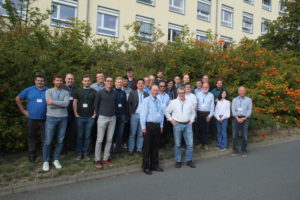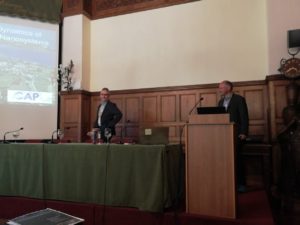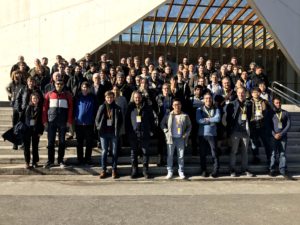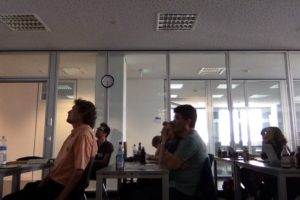As many of you know, every five years Psi-k organizes a general conference in its field; the next one will be held at EPFL in Lausanne, on Sep 14-17 2020. It’s the sixth in the series, after San Sebastian (2015), Berlin (2010) and Schwaebisch-Gmuend (2005, 2000, 1996). The last two events had more 1000+ participants each, making this the largest event worldwide in first-principles simulations, theory, and applications.

The conference will take place over 3.5 days, starting in the afternoon of Mon Sep 14, 2020, and will see 7 plenary speakers and more than 120 invited and 240 talks, organized around 42 symposia (and, of course, a MAD evening to shake it all off). All up-to-date information can be found at https://www.psik2020.net; registration will open in November 2019, so for the moment hold this date. Hotels listed are already ready to take bookings at the negotiated rates.
In conjunction with this announcement, we are also issuing a worldwide call to suggest thematic symposia for the conference – each symposium will last between 2 and 3 hours, and cover between 2 and 4 invited presentations (30 min each), and between 2 and 6 contributed presentations (15 min each), that will be chosen by the symposium organizers themselves among the abstracts submitted (deadline for all abstract submissions will be May 1, 2020).
In order to make a suggestion for a symposium, you need to have a group of up to 4 organizers, as broad and as diverse as possible, identify a symposium theme (keeping in mind that 16 symposia will be broadly dedicated to the core activities of the 16 Psi-k working groups, https://psi-k.net/groups/) and suggest between 2 to 4 invited speakers. Organizers of approved symposia will also be in charge, in May 2020, of selecting contributed talks (2 to 6) among all the abstracts submitted to the symposium by Psi-k 2020 participants.
The Psi-k 2020 Program Committee will evaluate in October 2019 all the submitted suggestions – the criteria will be
- scientific merit, timeliness, and interest of the topic
- intellectual diversity and inclusiveness of the speakers
- scientific merit of the organizers
- responding to the Psi-k mission statement (https://psi-k.net/)
You can find the symposium suggestion form at the bottom right of https://www.psik2020.net/program, or directly here: https://forms.gle/Q4QaVxPZgYuANQwWA
Deadline for suggestions is Sep 8 2019, midnight CEST (central european summer time).
Looking very much forward to a successful Psi-k 2020, and to seeing you all in Lausanne.
Nicola Marzari
Chair, Psi-k





